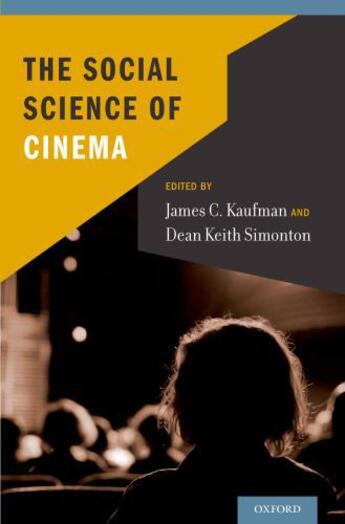Résumé:
Ever since motion pictures first landed on screen, there have been many key questions that the studios and movie watchers have tried to answer. What makes a movie an Oscar winner? How does one movie become a hit and another movie flop? Why do some films earn critical acclaim while other films... Voir plus
Ever since motion pictures first landed on screen, there have been many key questions that the studios and movie watchers have tried to answer. What makes a movie an Oscar winner? How does one movie become a hit and another movie flop? Why do some films earn critical acclaim while other films become critical turkeys or bombs? How do audiences perceive film? What makes a movie resonate with a viewer? Are we unduly influenced by negative behaviors on screen? These questions have spurred debates, discussions, and many theories. Until the last two decades, however, it was quite rare to have the issues approached from a scientific viewpoint.
The Social Science of Cinema compiles research from such varied disciplines as psychology, economics, sociology, business, and communications to find the best empirical research being done on the movies, based on perspectives that many filmgoers have never considered. Essays explore such topics as the specific factors that influence whether movies make money, win awards, or flop; how our personality impacts on our viewing preferences; issues of gender inequity on screen; the relationship between visual perception and the way movies are edited; and many more. This book attempts the ultimate act of figuring out the mystery behind the movies - what makes them so memorable to us, what makes them this century's leading works of art, and how this art intersects with the business of making money.
Donner votre avis















